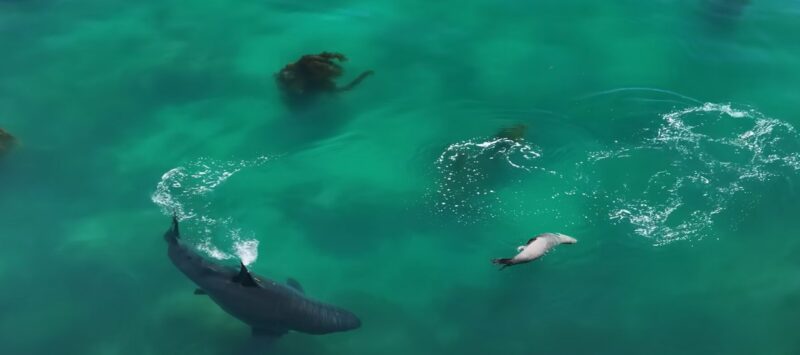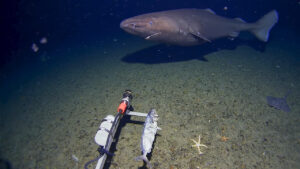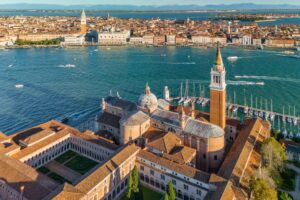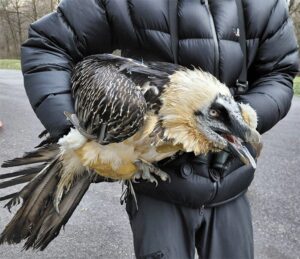Photographer and conservationist Carlos Gauna has captured footage of five great white sharks circling a poisoned sea lion. Known as the Malibu Artist, Gauna highlights the ongoing issue of domoic acid poisoning in California.
The sea lion seems to be suffering from paralysis due to domoic acid poisoning. Lying near the surface of the water, it occasionally lifts its head to breathe but otherwise barely moves. Throughout the video, five great white sharks swim around the stricken sea lion as it floats in the water. Says Guana, who focuses on great white sharks, “You undoubtedly know why they are there. Like most predators, white sharks are animals of opportunity.”
All five sharks approach their potential opportunity quite cautiously. None of them attempt to eat the sea lion. Even when some get incredibly close, they all end up retreating. They seem to be weighing whether they should strike.
Guana believes that their constant circling is a method of gathering information about their potential meal. All conclude that the risk is too high.
Where the toxins come from
California is home to a huge population of sea lions, and great whites are one of their most common predators. But there is an ongoing problem in the Golden State. Algae blooms are killing off its sea lions and other marine creatures, and these blooms release a dangerous neurotoxin.
Domoic acid outbreaks have occurred along the southern California coast for months. Upwellings of cold, nutrient-rich water feed these huge algal blooms, contaminating the fish and shellfish that chow down on these toxic diatoms.
In turn, the domoic acid builds up in the food chain. Giancarlo Rulli of the Sausalito Marine Mammal Center told The Los Angeles Times, “The levels we’re finding inside these animals is off the charts.”
The center has received many reports of sea lions becoming aggressive toward beachgoers and other unusual behavior. The main symptoms of the poisoning are lethargy, aggression, seizures, vomiting, miscarriages, and death. Domoic acid events are not new in the region, but researchers worry that they are becoming longer-lasting and more frequent.






